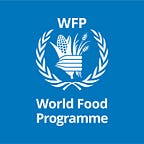From school meals recipient to Member of Parliament in Nepal
Parbati shares her story of over-coming challenges and fighting for the rights of discriminated families
Today marks International Women’s Day: an opportunity to recognize and acknowledge contributions of women to create a world where women and girls have equal rights and opportunities, free from violence and discrimination and thereby accelerating gender equality. Thirty-two-year-old Parbati Bisunke, currently a member of the Federal Parliament in Nepal recalls the three-fold discrimination she faced as a girl child, from a low caste community, and as a Dalit girl.
Despite growth and development in Nepal over the last few decades, some communities continue to be disproportionately left behind due to deeply entrenched discrimination. In the traditional Hindu caste system, Dalits are considered as ‘impure’ and referred to as the ‘untouchables’. Whilst initiatives have been taken to eliminate this caste-based discrimination, social hierarchies and divisions continue to persist. A multitude of gendered barriers often hinders children’s access, particularly that of adolescent girls, to schools.
Parbati expresses her gratitude for the school meals programme, which gave her an opportunity to transcend all barriers to achieve her full potential.
Shifting patriarchal and socio-cultural norms
Parbati was born to an impoverished family in a rural village called Bhagwatitole in Narayan Municipality of Dailekh district, an area vulnerable to food insecurity, poverty, and natural disasters. Both her parents were uneducated.
Her father worked as a labourer for daily wages to provide for her and her four younger brothers, and her mother as a housewife. Common in the South Asian context boys are favoured in the family which meant that girls like Parbati would face more systemic inequalities and challenges to survive. From a young age, she quickly learned about gender and caste-based discrimination at home and at school. She fought against the dominant patriarchal and cultural practices in her family, such as being deprived from school enrolment in favour of household duties and thereby receiving an unequal division of work. Whilst her and her brothers attended school, she was required to support her father with agricultural tasks every morning and evening to earn extra money for the family.
The Government of Nepal provided free public education from pre-primary and primary school up to grade 8, to encourage poor and food-insecure families to send both their daughters and sons to school. Parbati’s mother and aunt recognized her strong interest to learn, and secretly enrolled her into school. Her commitment to her studies and quick learning abilities enabled her to progress from pre-primary to grade 2 within a few months.
How school meals make a difference
Parbati, alongside thousands of other children received a nutritious hot midday meal made of fortified cereal enabling her to regularly attend school until the end of the day, and concentrate in the classroom without being distracted by hunger.
“The school used to close at 1pm, however after the school meals programme was initiated, the children would stay to receive their midday meal and continue their study until 4pm, which resulted in improved education outcomes.”
She worked hard, having to balance study during the evening alongside her workload at home. Despite these challenges she became the highest achiever in the eighth and tenth grade district level exams.
Parbati often shares her story, as she feels that the school meals programme supported her to fulfil her potential. She also notes how the programme helped her mother become to become more empowered.
The midday meal has improved the income generation for people. After sending their children to school, the mother has the whole day free, and is able to do other work (such as work) as a wage labourer.
Parbati’s journey to becoming an empowered politician
Parbati developed an interest in politics after following her grandfather’s involvement during her earlier ages. In grade 5, she created a desire for social injustice in politics as there was a lack of representation of women. As the years went by, she registered to participate in politics at the local committee level. This provided her the foundation and opportunity to be influential as a woman and more importantly, voice her concerns as a member of the marginalized Dalit caste against discrimination in both the community and at home. Against all odds, initially deprived of access to education she went on to attain a Bachelor in Political Science and Economics in Dailekh and now holds a seat in the Federal Parliament of Nepal.
A vision for tomorrow
Today, as an elected member of parliament Parbati continues to act as a committed advocate for human rights and social injustices, particularly in the areas of gender and caste-based discrimination.
As a young woman from a Dalit community, I am proud to be in a position where I can change and implement laws to shift harmful social practices.
Parbati believes in the meaningful participation at the local level, especially from socially marginalized and vulnerable communities such as the Dalits. She envisions a nation where there are equal opportunities and participation for both men and women, which needs to start from investing in both girls and boys from a young age.
Saving Lives, Changing Lives
Since 2006, the United Nations World Food Programme (WFP), in partnership with the Government of Nepal and with the generous support from the United States Government (USG) through the United States Department of Agriculture McGovern Dole Programme, has provided school meals to Nepalese school children across the country. The programme continues to reach up to 219,000 school children daily across impoverished and food-insecure regions of Nepal, coupling school meals with literacy, health and hygiene activities to increase access and equity to school, as well as improve learning outcomes.
As Parbati states “There are a lot of food insecure areas, and I cannot imagine the children in these areas going to school with hunger due to their dire situation”, exemplifying the vision that no-one gets left behind.
Story written by Judy Phuong and Shiwani Palikhe
Learn more about WFP’s work in Nepal.
